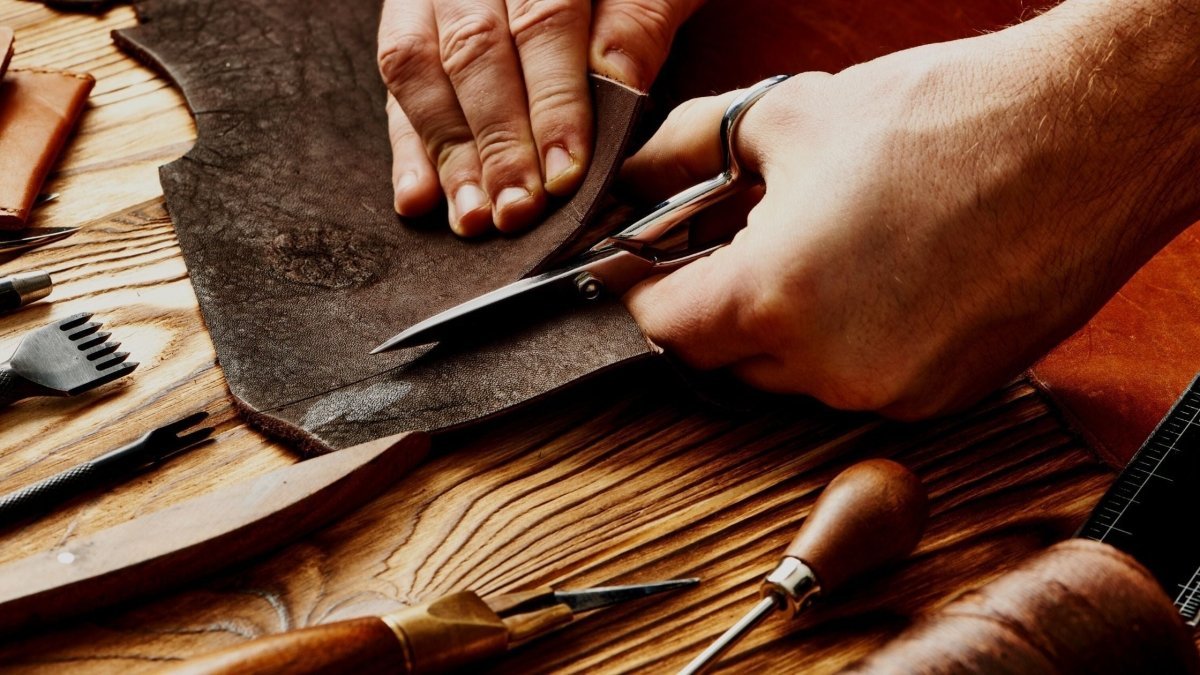Ready to make a switch to sustainable fashion? Check out brown living's top picks for plant-based materials, including pineapple, cactus, cork & other alternatives.
It’s no secret that fashion is the second most polluting industry after oil. However, the industry is attempting to change towards a greener future.
2019 became unofficially known as the year of sustainable fashion.
The search for terms related to sustainability increased significantly along with the consciousness of consumers. The conversation about eco-friendly and vegan fashion was the likes of which had never been seen before.
With the movement into sustainable fashion came the rise in the use of plant-based and eco-friendly materials in the industry. Natural materials that were organically produced, toxin-free and biodegradable such as organic cotton, hemp, linen, bamboo, lyocell and others were sought after. Recycling and upcycling became popular as a way for consumers to reduce their carbon footprint.
This drive to be eco-friendly led to the innovative use of materials and invention of new plant-based and lab-grown ones.
Here are some of our top picks of Truly Sustainable Materials that aren't just eco-friendly but also have a promise to use responsibly sources plant-based materials.
1. Cork

Cork is a vegan textile that has an extremely low carbon footprint. Cork is a huge part of the economy of Portugal and more cork oak forests are currently being planted in the south to meet the anticipated demand for the material. Cork is harvested by stripping the outer bark of the cork oak leaving the inner bark intact without damaging the tree. In the process of regrowing the bark every nine years, the tree captures and stores five times more carbon-di-oxide which makes cork a carbon-neutral material.
This cruelty-free process helps combat the high levels of greenhouse gases in the atmosphere. Not only is cork a renewable material, but it is also chemical-free, recyclable, hypoallergenic and biodegradable.

(Image: courtesy of Beej)
2. Piñatex


(Image: acquired from Google)
Piñatex is a natural textile made from pineapple leaf fibres. This responsibly-sourced, cruelty-free and vegan material is a by-product of the agricultural industry. Pineapple leaves are the waste product that are burnt or thrown away after a pineapple harvest in the Philippines. In order to create this vegan leather, these leaves are collected, fibres are extracted and then go through a rigorous cleaning process. Once the material has been transformed into Piñafelt, it is coloured using GOTS certified pigments.
This plant-based material is PETA-approved vegan and has a low environmental impact. Not only is the fabric water-resistant and durable, but it is also lightweight. Ananas Anam, the behind this pineapple leather, leaves a positive social-economic impact on the community that helps harvest it.

(Image: courtesy of Beej)
3. Apple Leather

(Image: courtesy of Eco-Age)
The leftovers of harvested apples—the seeds, cores and peel—are used to produce this plant-based leather. This material was created by Frumat, an Italian startup, that uses waste from processing apples in the Italian Alps to create this luxurious alternative.
As a by-product of the agriculture industry, the production of this material uses less water and emits fewer carbon emissions when compared to other materials. While this cruelty-free and vegan leather alternative uses a polyurethane coating, it is actively working towards a zero-plastic approach.
4. Reishi Mushroom Leather

(Image: acquired from Google)
Reishi is a fungus-grown leather alternative that has been developed after a decade of research and experimentation. MycoWorks recently released this Fine Mycelium material that is grown in labs and emulates the sensory aspects of genuine leather. Philip Ross, who is the founder of this material, started experimenting with living materials 20 years ago as an artist and chef. After years of work, he was able to invent a particular method to manipulate the mycelium cells to grow, weave together, and form specific shapes.
While the fungi is growing, the company coerces the mycelium cells into a woven structure that provides it with strength and durability. After the harvest is completed, it goes through the process of vegetable tanning and natural dyeing completed in Spain. The process is complex but with a bright future ahead as the company moves into growing the fungi into custom shapes to reduce their waste. Not only is this new-age material plastic-free, cruelty-free and vegan, but is also extremely versatile in nature.

(Image: Acquired from Google, courtesy of Reishi)
5. Desserto Cactus Vegan Leather

(Image: courtesy of Desserto)
This vegan-leather was born out of the idea of creating a leather alternative by Mexican entrepreneurs Adrián López Velarde and Marte Cázarez. After two years of extensive research and work, the duo successfully launched Desserto, a plant-based leather made from the pulp of nopal cactus.
This new-age material is organic, chemical-free, cruelty-free and has a low water usage when harvesting it. The material has won several awards and was the finalist for LVMH Innovation Award this year.

(Image: courtesy of Desserto)
The Indian Scenario:
While the industry is constantly coming up with new ways to experiment with eco-friendly materials, the focus is very apparel centric. The use of innovative materials within the accessories sector is quite unexplored. There are companies in India that are making headway in sustainability by using these materials, among them are Burlap People, Arture and Beej.
Beej is an environmentally conscious accessories brand that works with plant-based materials such as cork, Piñatex and Desserto as well as recycled and upcycled materials to produce mindful products that are kind to the environment. They are the first brand to bring Desserto to India and will be launching their collection soon.
With more and more companies using innovative and eco-friendly textiles, the way we view fashion and its impact on Earth is changing for the better. The future of fashion looks a little more sustainable.
This blog post was co-created with Beej. You can pick from their handcrafted range of cork & vegan accessories available here.



Share:
What is this Magic Potion called Essential Oils? Why is it Sustainable?
Empowering Women: One Underwear at a Time